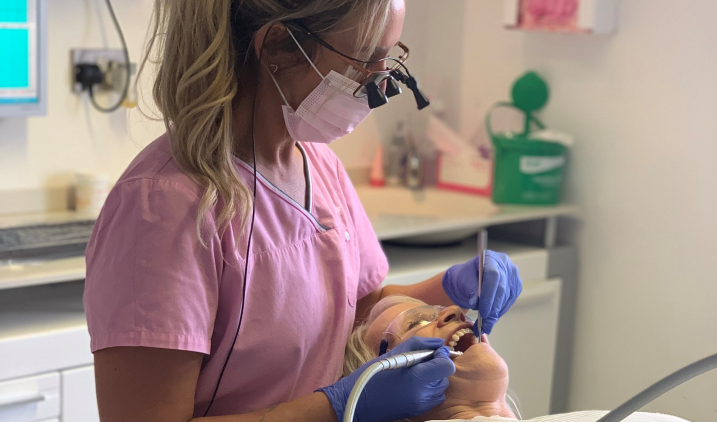how to become dental hygienist
Dental hygienist
Dental hygienists are an important part of the dental team, preventing dental problems in adults and children.
Working life
You'll help children and adults look after their teeth and gums. Sometimes you might be working on a one-to-one basis while on occasion you'll work with groups of people.

You'll carry out procedures such as:
- scaling teeth (at times under local anaesthetic)
- polishing teeth
- applying topical fluoride and fissure sealants
You are likely to work in general dental practices but there are job opportunities in hospitals and community dental services .
Your work as a dental hygienist will save teeth by preventing and treating gum disease, helping people get rid of associated problems like bad breath. The dentist will usually advise you and help direct your work, although it's now possible for hygienists and therapists who have extra training to set up their own practices or work independently in a dental practice so they can see patients without them seeing a dentist first.
In the community, you could work with people with a wide range of special or additional needs. If you are based in a hospital, you will help patients who may have had major surgery or complicated orthodontic treatment or have particular medical conditions. The hospital patients you see may be very ill, apprehensive or unsure after life-changing surgery.
Entry requirements, skills and interests
You'll need five GCSE subjects graded 4-7 or A-C, plus two or three A levels (depending on the university) or a recognised dental nursing qualification to get on to a dental hygiene course. Good people and communication skills are very important and as you might work in different settings, you'll need to enjoy a job with plenty of variety.
Training
To practise as a dental hygienist, you need to take a course approved by the General Dental Council (GDC) and then need to register with the GDC.
Subjects studied include:
- anatomy and physiology
- preventive dentistry
- dental health education
- dental pathology
- the management and care of patients
Several dental schools offer courses combining dental hygiene and dental therapy.
Career development
With experience, you can progress to become a practice manager, train other dental hygienists or develop further skills such as sedation or tooth whitening. You could also work as an orthodontic therapist.
Pay and benefits
Dental hygienists may be self-employed or employed directly by a dental practice so your working hours and pay will vary but some evening or weekend work may be required.
If you work for the the NHS in a hospital or community clinic, your starting salary might be at bands 5 or 6 of the Agenda for Change pay scale. You'll typically work 37.5 hours a week.
- Printer-friendly version
- PDF version
- Login to Bookmark
Other roles that may interest you
- Dental nurse
- Dental support worker
- Dentist
- Dental technician/dental technologist
how to become dental hygienist
Source: https://www.healthcareers.nhs.uk/explore-roles/dental-team/roles-dental-team/dental-hygienist
Posted by: brownfuleat.blogspot.com

0 Response to "how to become dental hygienist"
Post a Comment